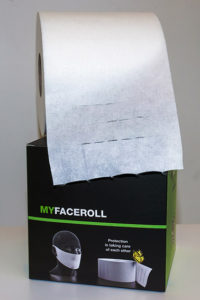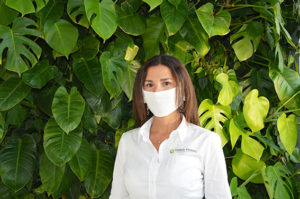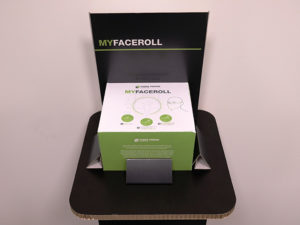 A technological innovation capable of producing up to 10 thousand face masks per minute, which can be adapted to all main “non-woven” materials, including a particular bamboo-based material that can be disposed of with other organic waste. This is the patent filed by Fabio Perini, a Lucca based company which is part of the Körber Tissue Business Area. The technology, which developed in just over a month during lockdown, can be quickly added to the company’s converting machines, new and/or already installed with customers all over the world.
A technological innovation capable of producing up to 10 thousand face masks per minute, which can be adapted to all main “non-woven” materials, including a particular bamboo-based material that can be disposed of with other organic waste. This is the patent filed by Fabio Perini, a Lucca based company which is part of the Körber Tissue Business Area. The technology, which developed in just over a month during lockdown, can be quickly added to the company’s converting machines, new and/or already installed with customers all over the world.
Oswaldo Cruz Jr., CEO of Fabio Perini S.p.A. and the Körber Tissue Business Area, has this to say about the technology: “Opportunities for innovation are everywhere, even in the midst of a health crisis, and during the lockdown our team got to work to respond to two needs: on the one hand, the huge demand for face masks – the Polytechnic University of Turin , for example, estimates that Italian companies alone will need almost 1 billion a month -; on the other, the issue of their disposal. In just over a month, from ideation to production, we arrived at the solution: a technological update that would allow the production of up to 10,000 masks (in rolls) per minute, and the use of a bamboo-based non-woven fabric that is biodegradable and can be disposed of with other compostable waste”.
 These single-layer masks are very useful for daily, collective, and community use in places such as airports, public transportation, shopping malls, supermarkets, groceries and of course in our workplaces.
These single-layer masks are very useful for daily, collective, and community use in places such as airports, public transportation, shopping malls, supermarkets, groceries and of course in our workplaces.
“The solution makes our machines also capable of manufacturing certified masks; however, pairing these materials with plastic would make the masks non-biodegradable. Nevertheless, together with different raw materials suppliers in the industry we are testing specific material solutions and we are confident of finding a solution soon” continues O. Cruz.
 Coronavirus has thus also diversified Fabio Perini’s business. O. Cruz concludes: “On this innovation, all over the world, we have had excellent feedback from our customers and we expect a significant grow in our business. In fact, from our own privileged point of view – we work with toilet paper and paper towel manufacturers across the world, from China to the United States – we have seen an important change. Initially the request was to increase the production capacity of the machines, especially those for toilet paper, due to the “stock effect” of these products, and to cope with this we even introduced a service for the fast delivery of machines (and those who know our sector know very well that this is not easy!). As weeks went by, demand has focused more on folded tissue paper products, due to the increase in the number of disposable items being used to meet greater hygiene needs. I believe this will continue as a trend for a long time to come”.
Coronavirus has thus also diversified Fabio Perini’s business. O. Cruz concludes: “On this innovation, all over the world, we have had excellent feedback from our customers and we expect a significant grow in our business. In fact, from our own privileged point of view – we work with toilet paper and paper towel manufacturers across the world, from China to the United States – we have seen an important change. Initially the request was to increase the production capacity of the machines, especially those for toilet paper, due to the “stock effect” of these products, and to cope with this we even introduced a service for the fast delivery of machines (and those who know our sector know very well that this is not easy!). As weeks went by, demand has focused more on folded tissue paper products, due to the increase in the number of disposable items being used to meet greater hygiene needs. I believe this will continue as a trend for a long time to come”.






















